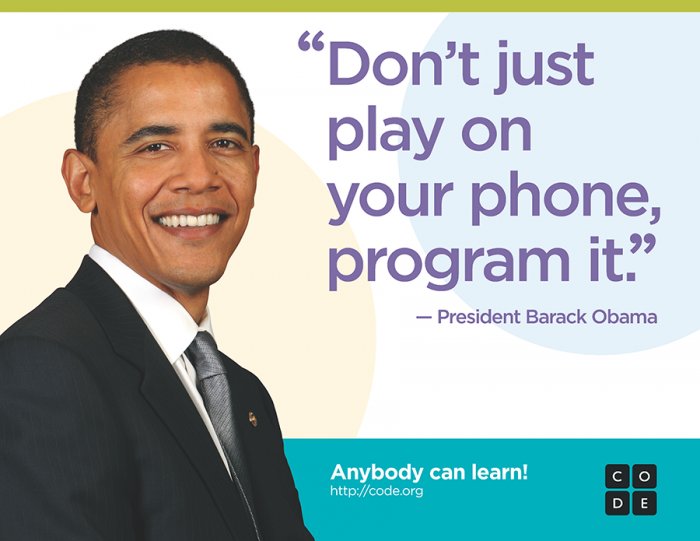Posted by Nixon
I was there to encourage students to embrace all things numerical by showing them how much fun coding is, while teaching them that it is actually all about maths.
Coding (or more formally computer programming) is the process behind so much we see and use today: mobile apps, computer software, websites, animated movies, computer games... The list is almost endless and the ability to code is reliant on strong maths skills. In a world where many children have ambitions to become computer programmers and game developers, the subject has never been so important, but it remains hard to motivate people to love it. However, computer programming is now viewed as so valuable that it’s part of the National Curriculum.
I’ve never really worked with children before, and definitely not at this level. Over two days, I ran 12 classes, each with groups of 30 mixed-age children. I began each session by introducing myself and telling the students how great being a developer is (naturally), highlighting the positives of being able to work around the world, and the diversity of jobs available, to engage as many kids as possible.
I then ran through some maths they knew to show how it can be fundamental to coding. I demonstrated how subjects such as probability are integral to games development, how shapes and angles are needed for animations, and how sequences grow into algorithms to become the basis for all programming.
After this, I taught the children how to code, using http://studio.code.org/ They were able to choose from one of the top four games on the site. They could: help Anna and Elsa from Frozen draw shapes in the ice, program flappy birds, kill some pigs in Angry Birds, or do some animations in the play lab.
I was very impressed at the speed the children moved through the levels, and as a testament to both their technical thinking and the games’ designs, most got straight into it with very little help. It was clear that the students were having a lot of fun, and their teachers were very impressed with the site. Needless to say, I was relieved that it all went to plan.
Do it yourself
My experience has sparked a desire to encourage children to embrace self-learning and try coding. I found a heap of resources that I think will help any budding developers that might be out there; even if they don’t know it yet.
Of course, code.org is amazing and has sections for teachers to run a full course with groups of children, so can be used in a more formal setting as well as at home.
Code Club volunteers go out to schools and help set up after school code clubs to help encourage and teach children. If your school doesn’t have one, ask them to get in touch with the site. I’m sure they can help connect local volunteers.
This article also has a great set of resources to help children to code. It includes mobile and tablet apps as well as board games and offline activities to encourage them to think logically and to introduce them to the concepts of programming.

Other articles promoting the positives of teaching kids to code:
- View of a 13 year-old developer (Microsoft)
- Why every child should learn to code (Guardian)
- How and Why to Teach Your Kids to Code (LifeHacker.com)

